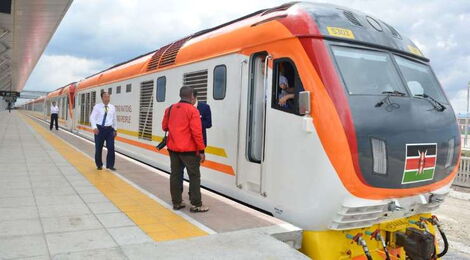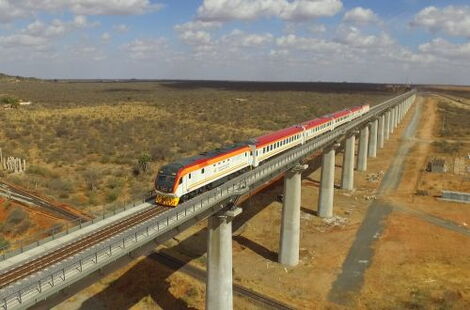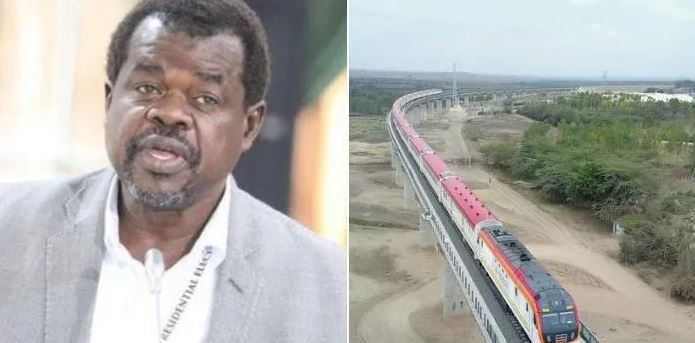Busia Senator Okiya Omtatah on Wednesday, November 10, continued making waves against the punitive nature of the full Standard Gauge Railway (SGR) contract the Kenyan Government signed with Chinese companies.
While appearing on KTN News, the Senator, who claimed to be in possession of the full contract, noted that the parties had tweaked the name of the project to 'Chinese Standard Gauge Railway.'
He argued that the move only allowed the managers of the project to import spare parts from China.
"There is the financial contract which was connected to the Exim Bank for financing. The contract between China Road and Bridge Corporation (CBRC) and the Government of Kenya and their was a technical and Financial contracts.

"In the contract, it is referred to as the Chinese Standard Gauge Railway. (The contract) is tweaked a bit so that we can only get the spare parts from China," stated the fiery human rights defender.
He further maintained that the technical contract between the Kenyan Government and CBRC was so punitive that Kenya Railways Corporation (KRC) initially rejected the contract.
According to the Senator, the corporation was not comfortable with the specifications included as part of the contract.
"The technical contract that they use was initially rejected by the Kenya Railways because of the specifications. They felt they (specifications) were inferior because what we have is called the Chinese Standard and not the Standard Gauge Railway (SGR)," he added.
For instance, all the present and future assets of the corporation are reportedly tied to the deal giving the bank the right to take over its management should the country default on the loan repayment.
Properties under the management of Kenya Ports Authority (KPA) including Mombasa Port are also tied to the deal.
Omtatah also speculated that the country might have lost Ksh46 billion through ghost contracts the Kenyan government got into.
Specifically, he took an issue with the award of a contract aimed at research, development and design of the locomotives which set back taxpayers Ksh610 million.
"I, personally, just using a pencil, I was able to identify about Ksh46 billion in ghost procurement. For example, there is a USD5 billion charged from the people of Kenya for research, development and design of the locomotives. When you look at the locomotives we have are largely refurbished," he explained.
The entire project was valued at Ksh500 billion.


